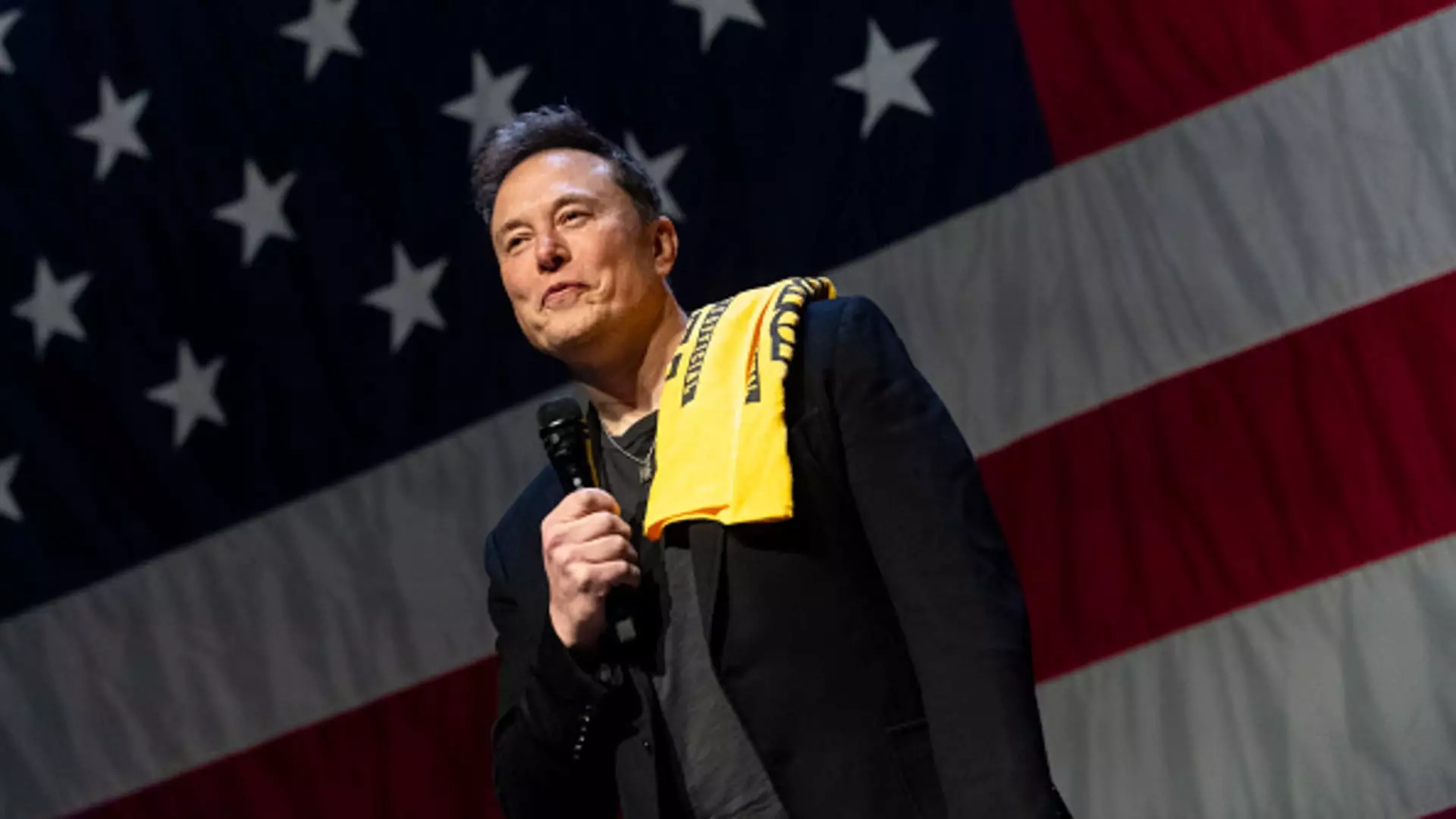The legal controversy unfolding in Pennsylvania surrounding Elon Musk and his political action committee, America PAC, raises critical questions about campaign finance, legality, and the implications of offering financial incentives to voters. The lawsuit spearheaded by Philadelphia District Attorney Larry Krasner seeks to halt the committee’s awarding of substantial cash prizes to residents of swing states. As this legal battle progresses, it not only underscores Musk’s political maneuvers but also illuminates the intersections of federal and state law within the realm of electoral politics.
The roots of this legal dispute lie in Krasner’s assertion that Musk’s $1 million prize giveaways constitute an unregulated lottery that violates state law. His argument hinges on the premise that such lotteries can unduly influence the outcomes of elections by enticing participants to provide personal information in return for the chance to win a prize. In his complaint, Krasner suggests that Musk’s actions are designed to manipulate voter behavior in an election context—a move seen as particularly egregious given Musk’s open support for Donald Trump.
Initially filed in state court, the lawsuit experienced a quick escalation when attorneys for Musk and America PAC sought to federalize the proceedings. Their claim rests on the assertion that because America PAC is registered as a federal entity, state laws should not apply. This tactical maneuver complicated the narrative and raised questions about jurisdiction. While the lawsuit’s core claims relate to public nuisance and consumer protection, Musk’s legal team articulated a broader perspective, arguing that Krasner’s complaint essentially revolves around alleged interference with a federal election.
Central to the lawsuit is the legality of Musk’s actions under both state and federal laws governing political contributions. The U.S. Department of Justice has previously warned America PAC that the cash giveaway may raise red flags under federal election laws. Despite those warnings, the PAC has continued its operations, claiming to have distributed $12 million through various lottery awards, including four $1 million prizes to recipients in Pennsylvania—a clear focal point of the DA’s contention.
From a legal standpoint, the situation demonstrates the challenges inherent in regulating emergent political practices, especially those involving substantial financial incentives. Election laws are designed to foster transparency and mitigate corruption; however, Musk’s approach—while arguably innovative—also poses risks of circumventing established norms. The murky waters of defining what constitutes lawful electoral behavior in the era of social media and direct-to-voter campaigns become evident through this case.
Moreover, this case brings to light the ethical implications of incentivizing voter behavior. Krasner’s lawsuit underscores concerns that the financial allure of prizes may seduce voters into surrendering their personal information and swaying their political pledges. The narrative advanced by Krasner suggests that the $1 million giveaways are more than mere promotions; they are strategic tools designed to manipulate the electoral landscape.
The implications of this legal battle extend beyond just the finances of voters in swing states. The ongoing contest between Musk and Krasner serves as an emblematic case within the broader discourse on voter integrity and election interference. With the presidential race heating up between Kamala Harris and Donald Trump, the stakes are particularly high. If the courts determine that America PAC’s actions are indeed illegal, it could set a precedent limiting how political entities can incentivize voter engagement in the future.
As the legal proceedings unfold, the potential for both state and federal courts to influence the trajectory of this case remains significant. The recent developments, including accusations against Musk’s followers for antisemitic attacks against Krasner, only add layers of complexity to an already fraught legal environment. As the Philadelphia DA’s office seeks to maneuver the case back to state court, the question of who ultimately has jurisdiction becomes paramount.
The clash between Elon Musk’s America PAC and the Philadelphia District Attorney’s office encapsulates the evolving dynamics of campaign finance, the ethical boundaries of voter engagement tactics, and the intricate layers of the legal system navigating this contemporary political landscape. This discourse is evolving, and the final ruling could reshape approaches to political campaigning in a substantial way as election cycles continue to become increasingly polarized.


Leave a Reply